Insights
Insights and Expert Advice
Explore our Blog for expert tips, strategic insights, and practical advice across lending, property, and business finance. Whether you're growing your investment portfolio, planning your next purchase, or navigating complex financial decisions, our content—supported by trusted partners—helps you make smarter, more confident moves.

Clarity.
Strategy. Growth. Empowerment.
Calculators
Government Incentives
Eligibility criteria apply.
Federal Government Scheme
First Home Guarantee (FHBG):
Supporting eligible home buyers to buy a home sooner, with a deposit as little as 5%.
Regional First Home Buyer Guarantee (RFHBG):
Supporting eligible regional home buyers to buy a home sooner, in a regional area, with a deposit as little as 5%.
Family Home Guarantee (FHG):
Supporting eligible single parents and eligible single legal guardians of at least one dependent to buy a home sooner, with a deposit as little as 2%.
Click here to learn more.

Australian Capital Territory
The ACT Government has a concession scheme to help people to buy the home by removing or reducing duty on any property.
Click here to find out more.
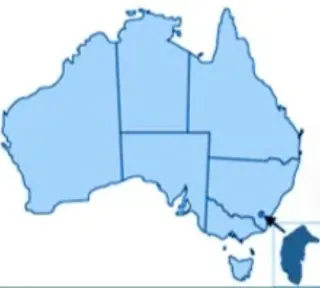
New South Wales
First home buyers in NSW may be eligible for a duty exemption, concession or grant. Key workers, single parents and single people 50 or over may also be eligible for Shared Equity Home Buyer Helper.
First Home Buyers Assistance Scheme:
Full or partial exemption on Stamp/transfer duty.
First Home Owners Grant (New Home):
$10,000 towards the purchase price, in addition to the First Home Buyers Assistance Scheme benefits.
Shared Equity Home Buyer Helper:
Support for eligible first home buyer key workers.
Click here to find out more
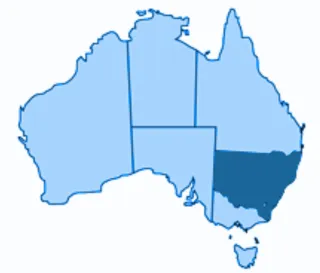
Northern Territory
If you are buying or building a new home, you can apply for a First Home Owner Grant (FHOG) of $10,000.
Click here to learn more.
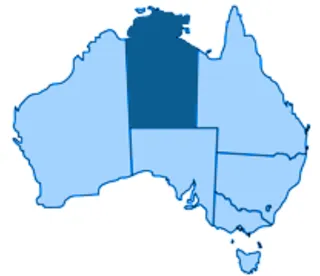
Queensland
The first home owner grant gives eligible first-time home buyers $15,000 towards buying or building a new home in Queensland.
The regional home building boost grant gives eligible applicants $5,000 after the purchase or construction of a brand-new house, unit or townhouse in regional Queensland.
When you buy or acquire a residence or vacant land on which you intend to build your first home, you may be able to claim a concession that reduces the amount of transfer duty you have to pay.
Click here to learn more
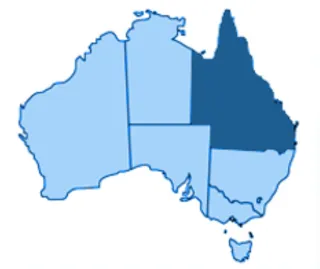
South Australia
First Home Owner Grant: You may be eligible for a first home owner grant of up to $15,000
Stamp Duty Relief for Eligible First Home Buyers: You may be eligible for a stamp duty relief on the transfer of land.
Click here to learn more
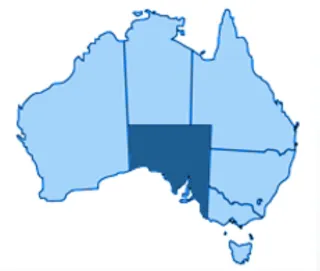
Tasmania
A first home owner grant is available to eligible applicants who purchase or build a new home in Tasmania. $30 000 grant: for transactions that commence between 1 April 2021 and 30 June 2024.
Click here to learn more.
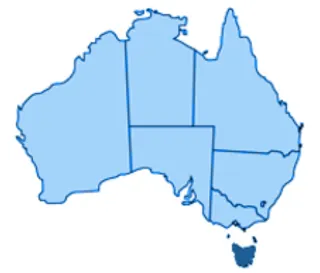
Victoria
In Victoria you can receive $10,000 with the First Home Owner Grant (FHOG) If you are buying or building a new home valued up to $750,000.
To be eligible, the home must not have been previously sold or occupied. You may also be eligible for, and receive, more than one exemption, concession or reduction from stamp duty for your property.
Click here to find out more
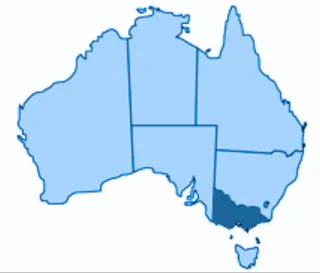
Western Australia
You may be eligible to the grant being $10,000 or the consideration paid to buy or build the house if less than that amount.
Click here to learn more.
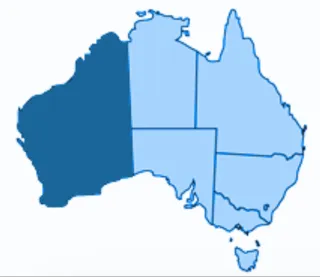
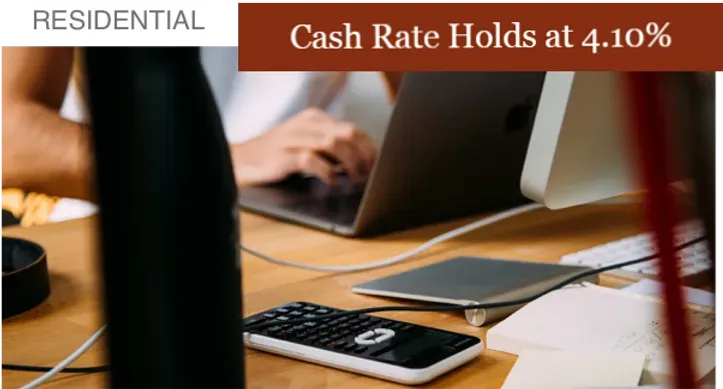
The Vadium Monthly - October 2023
THE VADIUM MONTHLY - RESIDENTIAL - October 2023

How to reduce the impact of rate rises
The recent rate hikes by the Reserve Bank of Australia (RBA) have understandably put borrowers under pressure. The fact that the RBA has implemented a handful of consecutive holds is little consolation for those struggling with higher borrowing costs.
However, taking a proactive approach can help you mitigate the impact of rising interest rates and put you back in control of your financial situation. Here are some strategies you can consider:
Review your budget
Start by conducting a detailed review of your budget. Analyse your income, expenses, and debts to identify areas where adjustments can be made to allow for higher repayments. Look for opportunities to cut back on discretionary spending or make lifestyle adjustments that will free up additional funds to help with your mortgage repayments.
Negotiate with your lender
Reach out to your lender to discuss securing a lower interest rate. If you are transitioning from a fixed-rate period, you may be facing a variable interest rate that's higher than what your lender offers to new borrowers. This is where a mortgage broker can help negotiate a different rate with your current lender, if possible.
Refinance to a lower interest rate
If your current lender is unwilling to provide a competitive interest rate, refinancing with a different lender might be an option. Mortgage brokers can help compare rates and loan terms which could give borrowers some additional room to breathe. Refinancing can not only lead to better interest rates but may also allow you to consolidate debts or access equity in your home at the same time.
Make extra repayments
Making additional repayments on your mortgage can significantly help you in the long run – if you have the scope and spare income. By reducing your principal, you'll lower the amount of interest charged on your home loan. By paying off your loan faster you will be less susceptible to future rate hikes.
Extend the loan term
While it may not be the preferred option for everyone, extending the loan term can reduce your monthly payments. However, it's important to understand that this also means paying more interest over the lifespan of your loan. This can be a good short-term solution.
Seek out better features
Consider features that can reduce the amount of interest you pay on your home loan like an offset account or redraw facility. These features enable you to use surplus funds or savings to offset your mortgage balance.
Fix your home loan
Fixing your home loan can be a strategic move to manage rising interest rates. By locking in a fixed rate, you shield yourself from the risk of further rate hikes, providing stability and potentially saving money on your mortgage repayments.

Higher interest rates weigh on household spending
The Reserve Bank of Australia (RBA) may be nearing the end of its interest rate hiking cycle, but the Australian economy is already feeling the effects.
The CommBank Household Spending Insights Index found that Australians are spending less as higher borrowing costs eat into household budgets. While the index recorded a modest uptick of 0.7 per cent in household consumption last month, the annual growth rate in spending remains far below its recent peak.
This slowdown in spending growth coincides with the RBA's series of rate increases. Spending patterns vary across Australia, with Queensland leading the pack.
The Northern state boasted the strongest monthly spending growth in August, with a 1.5 per cent increase, followed by Tasmania (1.3 per cent) and the Australian Capital Territory (1.1 per cent). However, the annual spending growth story tells a different tale, with Western Australia (4.7 per cent) and South Australia (4.5 per cent) topping the list.
On the flipside, Victoria has seen the weakest spending growth, with year-on-year figures remaining stagnant and the state showing only a marginal rise in August (0.4 per cent).
The recent surge in spending was attributed to a combination of factors, including international students returning to Australia, higher petrol prices, and the excitement surrounding the FIFA World Cup overall contributing to a 2.3 per cent boost in household spending. One notable area of spending increase was education, which saw a significant uptick of 2.8 per cent, thanks to record immigration levels. The annual rate of education spending accelerated to a staggering 14.7 per cent, up from 9 per cent in July.
Recreation spending also posted strong growth, rising by 1.9 per cent and 8.4 per cent annually. This increase came on the back of the FIFA tournament and several high-profile concert tours. While spending in categories like motor vehicles, health, and insurance showed increases, they were offset by weaker performance in hospitality and utilities spending. This decrease in hospitality and utilities spending was partly due to government rebates aimed at alleviating rising energy bills.
CBA Chief Economist Stephen Halmarick said there are concerns over the significant slowdown in annual household spending growth. He said that the impact of the RBA's interest rate hikes, which amounted to a total of 400 basis points, was evident in the deceleration of spending growth. "With the RBA holding rates since June, our view is that the hiking cycle is now at an end," Mr Halmarick said.
Mr Halmarick stated he anticipates a further reduction in spending over the next year, citing the restrictive nature of current monetary policy and the tightening financial conditions as a result of the lagged effect of RBA rate hikes and mortgage refinancing. "We continue to expect household spending to weaken further over the remainder of 2023 and into 2024,” he said.
Despite the overall slowdown in spending, there is some optimism in the housing market. The CommBank Home Buying Index recorded a 0.6 per cent increase in August, following a 2.1 per cent gain in July. However, the annual Home Buying Index figures have declined, dropping to -13 per cent in August from -9 per cent in July.
Mr Halmarick explained that while there will be a lagging effect from previous RBA rate hikes, the belief that interest rates have peaked in Australia will likely support home-buying activity in the coming months. However, this activity may be constrained by a limited supply of available housing. He forecasts a 7 per cent rise in dwelling prices in 2023, with an additional 5 per cent increase expected in 2024.

Home prices increased 0.8% in September
The rebound in property prices is showing no signs of slowing down, with values increasing 0.8% in September. According to CoreLogic, the jump in prices marks the eighth consecutive month of growth which has also seen values increase 2.2% over the quarter. The September quarter saw Adelaide record the highest growth rate at 4.3%, followed by Brisbane at 3.9% and Perth at 3.6%. At the other end of the growth spectrum, Hobart values were down 0.2% over the quarter, taking the southern capital to a new cyclical low. While Sydney prices increased by 1% & Melbourne by 0.4%.
CoreLogic’s research director, Tim Lawless, said the performance of the housing market in each city reflects the underlying supply dynamic. “The three capitals recording the highest capital gain each have advertised supply levels that are around 40% below their previous five-year average,” Mr Lawless said. “Advertised supply levels across Hobart, where values are still trending lower, have been holding at above average levels since June last year and were almost 40% above its five-year average.”
Since finding a trough in January, the national index has recovered by 6.6%, however, home values remain 1.3% below record highs recorded in April last year. According to Mr Lawless at the current rate of growth, we are likely to see the national property prices hit a new high by the end of November. “We have already seen dwelling values reach new record highs in Perth and Adelaide. Brisbane looks set to reach a new record high in October, with home values currently only 0.6% below their previous peak,” he said.
“Hobart and Canberra have the furthest to go before staging a nominal recovery, with dwelling values remaining 12.4% and 7.0% below their cyclical highs from last year.” Mr Lawless said despite the increase in values, the upper end of the housing market is starting to slow down. “After leading the recovery cycle, the premium housing sector might be losing some steam, with the quarterly rate of growth across upper quartile dwellings easing back to 2.3% while the lower quartile growth rate accelerated to 3.2%. This shift is partly attributable to the lower value capitals such as Perth and Adelaide recording a faster rate of growth, however even in these cities it is the lower quartile that has outperformed,” he said.
Mr Lawless said in the more expensive cities, Sydney and Melbourne, the broad middle of the market is now recording the highest growth rate after previously being led by higher-priced homes. “Possibly we are starting to see renewed affordability challenges deflecting more demand towards the middle of the market where barriers to entry are lower,” he said.
Regional markets are continuing to lag the capitals with every ‘rest of state’ region recording weaker growth conditions relative to their capital city counterpart over the September quarter. At a broad level, the combined regional markets recorded a 1.1% rise in dwelling values through the September quarter which was less than half the gain across the combined capital city market (2.5%). “Softer housing conditions across regional Australia looks to be more demand-driven, with the estimated number of home sales 6.5% lower than a year ago and 9.2% lower relative to the previous five-year average,” Mr Lawless said.
“In contrast, the estimated volume of home sales across the combined capital cities was 1.9% higher than a year ago and 6.3% above the five-year average.” He said most regional markets are also showing relatively low advertised supply levels which has been enough to place some upwards pressure on values. However, regional Victoria and regional Tasmania are exceptions, where advertised supply is above average and housing values trended lower over the quarter.

Should you pay off your home or buy an investment property?
When it comes to property, there is no one right way of doing things. After a few years of property ownership, homeowners will often think about what they should do with the equity they’ve built up. In particular, they often consider expanding their property portfolio. However, that thought bubble often appears as they are trying to pay down their mortgage on their home. Both options have their own set of advantages and disadvantages, and the decision ultimately depends on your personal financial goals and risk tolerance. Here are the pros and cons of both paths.
Paying off your mortgage:
Pros
Debt freedom: One of the biggest benefits of paying off your mortgage early is the peace of mind that comes with being debt-free. It eliminates the financial burden of monthly mortgage payments and provides a sense of financial security.
Increased equity: Paying off your home loan reduces your mortgage debt and increases the equity you have in your property. This can be especially valuable if you plan to downsize or sell your home in the future.
Lower financial stress: Without the pressure of mortgage payments, you'll have more disposable income to allocate to other investments or expenses, reducing financial stress.
Cons
Tied-up capital: Paying off your mortgage requires a substantial amount of capital. This capital could potentially be invested in higher-return opportunities, such as additional investment properties or other assets.
Reduced liquidity: By allocating a significant portion of your savings to pay off your mortgage, you may limit your ability to seize investment opportunities or handle unexpected expenses.
Higher borrowing costs: If you decide to borrow against a property that's already paid off in the future, you might encounter higher borrowing costs, as interest rates can fluctuate.
Buying an investment property:
Pros
Income generation: Investment properties can provide rental income, offering a steady stream of cash flow to supplement your income.
Tax benefits: There are potential tax advantages associated with investment properties, including deductions for mortgage interest, property taxes and depreciation, which can reduce your overall tax liability.
Portfolio diversification: Owning multiple investment properties can diversify your investment portfolio, spreading risk and potentially increasing your overall returns.
Cons
Landlord responsibilities: Becoming a landlord entails significant responsibilities, including property maintenance, tenant management and legal obligations. It can be time-consuming and stressful.
Market risk: The real estate market is subject to fluctuations and there's no guarantee that your investment property will appreciate in value. Conduct thorough research before purchasing to mitigate this risk.
Vacancy risk: Investment properties may experience periods of vacancy, leading to a loss of rental income. This can strain your finances, especially if you rely heavily on rental income.
Understanding the impact of car loans on your credit score
Your credit score is an important factor that all lenders use to decide if they are prepared to lend to you.
A credit score is a three-digit number that reflects your creditworthiness based on your financial history and behaviour. It acts as a financial report card, summarising how you manage your credit and debt. Lenders, such as banks and financial institutions, rely on your credit score to assess the risk associated with lending you money.
Your credit score impacts things like whether or not your loan is approved, the interest rate that you will have to pay and if you get approved for other things like rental applications or even employment opportunities. Whenever you apply for credit of any kind, your credit score will be impacted. This is certainly going to be the case when applying for a car loan. Here’s how a car loan can impact you.
Hard credit inquiries
When you apply for a car loan, the lender will conduct a hard credit inquiry, also known as a hard pull. This inquiry is a standard procedure in loan applications. While a single hard inquiry has minimal impact on your credit score, multiple inquiries within a short period can raise concerns from lenders. It may indicate that you're seeking additional credit, potentially making you appear riskier to lenders. It’s important to know your chances of success before applying which is where a finance broker can really help.
Adding a new credit account
Successfully obtaining a car loan adds a new credit account to your credit history. This can have both positive and negative implications. On one hand, it diversifies your credit mix, which can look good to lenders. On the other hand, a new account may temporarily lower the average age of your credit history, potentially impacting your credit score. However, this is often short-lived and responsible management of the new account can help improve your creditworthiness over time.
On-time payments
Consistently making on-time payments on your car loan is crucial for maintaining or improving your credit score. Timely payments demonstrate responsible financial behaviour and can positively impact your credit history.
Payment history
Your payment history, including any late or missed payments on your car loan, significantly impacts your credit score. It's vital that you meet your payment obligations to avoid negative marks on your credit report.

*This is general information only and is subject to change at any given time.
Your complete financial situation will need to be assessed before acceptance of any proposal or product.
Learn How to Make Your Money Work Smarter
Discover how building financial literacy can strengthen your position and set you up for long-term success. In our session, we’ll break down practical wealth-building techniques and share real-world strategies across property, investing, lending, and tax—giving you the knowledge and confidence to take control of your finances, no matter where you're starting from.


We are committed to helping you achieve financial success with expert guidance and tailored solutions. Let’s work together to build a secure and prosperous future. Contact us today to start your financial journey.
Quick links
Services
© Vadium Lending. 2026. All Rights Reserved.
ABN-62213831884 Australian Credit Licence -384324 Australian Credit Reference -545975